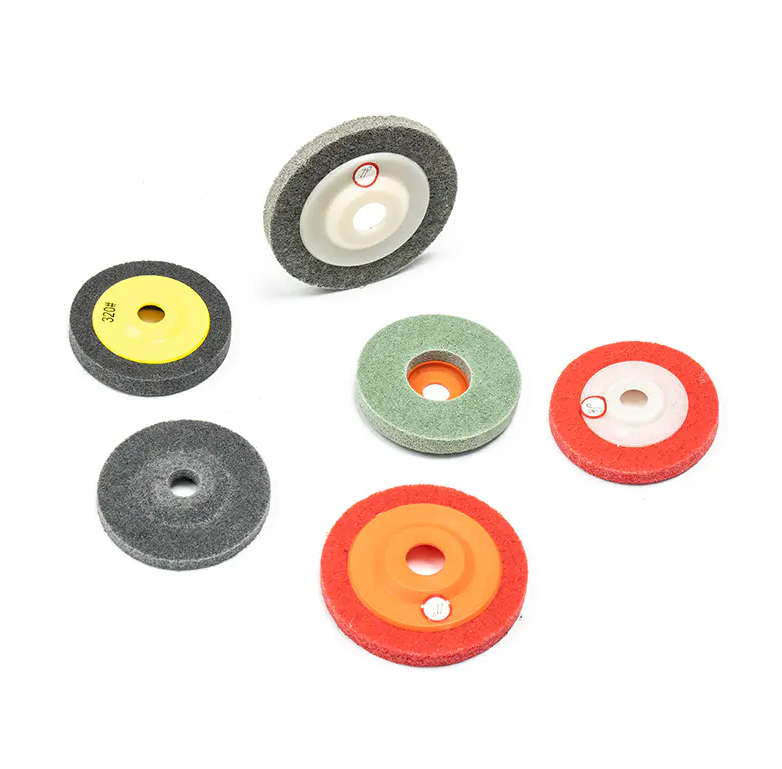When it comes to surface conditioning, deburring, or polishing applications, one of the most critical factors to consider is the abrasive tool’s wear resistance. In industrial environments where repetitive, high-speed, and continuous operations are involved, choosing a tool with superior longevity can make a significant difference in both productivity and cost-efficiency. Among the many available options in the abrasive tool market, the Non-Woven Fiber Wheel has become widely popular due to its balance of durability, consistency, and surface-finish quality. But how does the Non-Woven Fiber Wheel perform in terms of wear resistance?
The Non-Woven Fiber Wheel is made from a web of synthetic fibers, often nylon, that are bonded with abrasive grains and resin. This structure is inherently resilient, flexible, and uniform, making it ideal for controlled surface finishing. One of the defining features of this type of wheel is its “self-sharpening” behavior. As the outer fiber and grain layer wears away during operation, new abrasive grains are exposed beneath the surface. This unique feature maintains the wheel’s cutting efficiency over time, which directly contributes to its wear resistance and operational lifespan.
Wear resistance of a Non-Woven Fiber Wheel depends on several key variables: the type and hardness of abrasive grains used (such as aluminum oxide or silicon carbide), the wheel's density and grade, the speed and pressure of operation, and the material of the workpiece. In general, a wheel with higher density and tougher abrasive material will last longer, especially when used on hard substrates such as stainless steel or titanium. However, this also needs to be balanced with the desired surface finish—softer wheels may wear faster but produce finer finishes, which are required in some delicate applications.
Compared to conventional flap wheels or cloth-based polishing wheels, Non-Woven Fiber Wheels typically exhibit superior resistance to clogging and smearing, which also contributes to slower wear and longer usability. This is particularly evident in applications involving soft metals like aluminum or materials prone to generating heat or residue. The porous structure allows heat to dissipate and debris to escape, preventing glazing of the surface and maintaining cutting performance for longer periods.
In tests and user reports, high-quality Non-Woven Fiber Wheels have shown excellent durability across various industries. For example, in the automotive and aerospace sectors, they are used for blending welds, finishing turbine blades, or prepping surfaces for coatings. Even after extended use in demanding environments, these wheels maintain their shape and abrasive properties better than many traditional alternatives.
However, no abrasive product lasts forever. If used with excessive pressure or at the wrong speed, even a Non-Woven Fiber Wheel can degrade prematurely. Therefore, adherence to manufacturer-recommended operational parameters is essential to achieving optimal wear performance.
In conclusion, the Non-Woven Fiber Wheel demonstrates commendable wear resistance, particularly when used correctly and selected based on the specific application. Its unique fiber-abrasive construction and self-renewing surface allow for consistent performance over extended use, making it a reliable and cost-effective choice for industries that demand high-quality surface conditioning with minimal downtime.
Non-Woven Fiber Wheel is a specialized industrial tool designed for precision surface preparation, polishing, and material removal tasks. Made from a blend of non-woven fibers and high-quality abrasives, these wheels are crafted to withstand elevated temperatures and harsh operating conditions.
